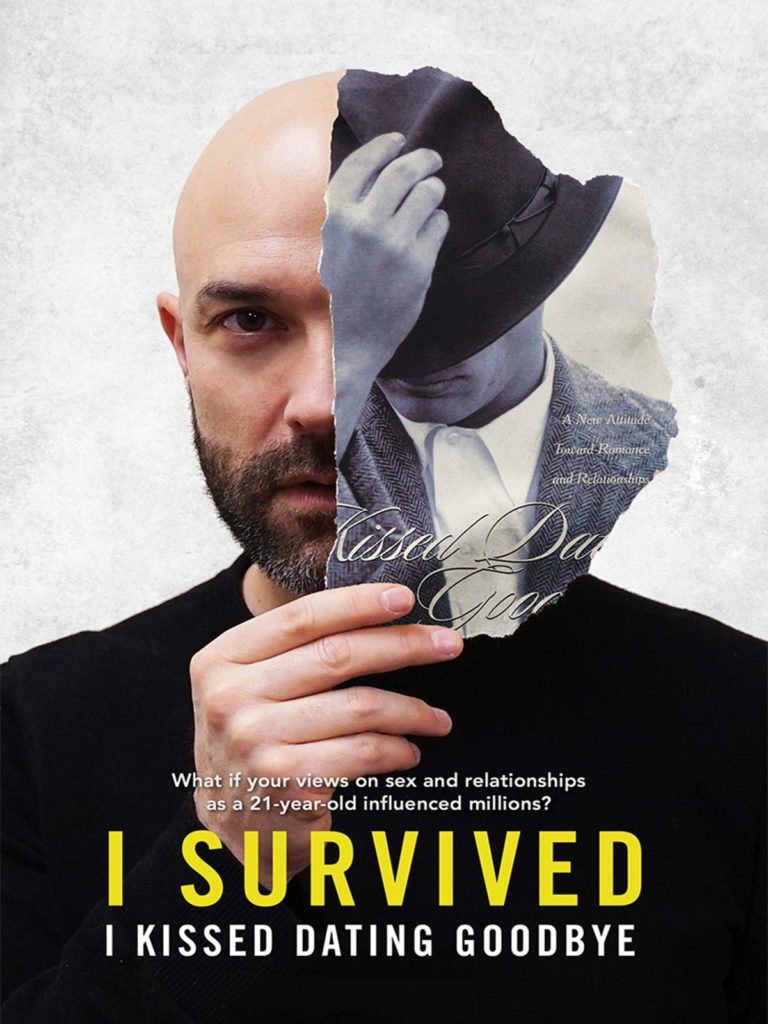Today’s blog will be a little personal and a lot theological. This isn’t new for me, but if you’re not interested in such things, I won’t mind if you skip it. However, it’ll tackle a cautionary tale of a writer’s influence. In this case, Joshua Harris.
For those who don’t know, Harris wrote and published an infamous book at age 21 in 1997 called I Kissed Dating Goodbye. It was an instant sensation, selling over a million copies. Unfortunately, as the trailer for Harris’ recent documentary on the book’s influence says, “The best-seller became the Bible for Christian romance.” He wrote a follow-up a few years later titled Boy Meets Girl since by that point he’d gotten married.

Fast forward two decades. In 2016, Harris announced that he regretted writing the book because of the influx of letters he’d received from people who were hurt by his advice. He realized, among other things,
In trying to warn people of the potential pitfalls of dating, it instilled fear for some—fear of making mistakes or having their heart broken. The book also gave some the impression that a certain methodology of relationships would deliver a happy ever-after ending—a great marriage, a great sex life—even though this is not promised by scripture.

This is prompted him to make the aforementioned documentary, I Survived I Kissed Dating Goodbye, and take this book and the sequel out of print.
Things got worse last month. He announced on his Instgram that he was divorcing his wife. A few days later in another post, he confessed,
I have undergone a massive shift in regard to my faith in Jesus. The popular phrase for this is “deconstruction,” the biblical phrase is “falling away.” By all the measurements that I have for defining a Christian, I am not a Christian. Many people tell me that there is a different way to practice faith and I want to remain open to this, but I’m not there now.
There’s been a lot of talk in Christian culture about this, and understandably so. Harris’ influence was pervasive. I myself didn’t read his first book (I thought the idea was dumb), but I did read his second because I thought it had more legitimacy. I’m sure he gave most of the same advice. While I always balked at the idea of “not dating” and letting God providentially give you a spouse, these ideas became so common in the church, I think I absorbed some of them by osmosis. I was young and impressionable and hadn’t yet learned critical thinking skills (well, at least when it came to things espoused by other Christians). Do I count myself as one of the people hurt by Harris’ teachings? Yes, but I was hurt by his “splash damage” (to use a gaming term) and not directly wounded. I’ve been working hard to shed my old thinking for a long time.
Harris has admitted he’s a recovering legalist. He took the strict rules of the crazy, stereotype-creating spheres of homeschooling (#NotAllHomeschoolers) and made them mainstream. Legalism is always destructive. The problem is rules are easier to preach, teach, and enforce than comparatively nebulous principles. Jesus said to “love your neighbor.” That begs questions like, “Who is my neighbor?” and “How do I love them?” Rules regulate behavior. Principles guide motivations. That’s why Jesus spoke against legalism and “religiousness” more than anything else. Just read the Sermon on the Mount. He makes it clear that adultery is an action that stems from lust, which occurs in the heart. It wasn’t enough to stop the actions; the internal sin has to be quelled first.
Legalism frequently drives people away from Christianity. Such an emphasis is placed on rules that it robs churchgoers or young Christians of any joy. I’ve heard countless stories of this. I’m sure the seemingly extreme methods Harris advocated drove people away. It created not only tremendous pressure on young people, but an atmosphere of parental and liturgical tyranny and hypocrisy. Teens weren’t allowed to do the usually innocent things their parents did growing up. “Do as I say and not as I did.” Maybe those parents made mistakes and had good intentions, but as the old saying goes, “The road to Hell is paved with good intentions.”
Knowing all of this, it’s no surprise Harris’ life has turned out the way it has. His personal brand of legalism wrecked many people, possibly led to his divorce, and eventually drove him to abandon Christianity. It took twenty years for it to happen, but those consequences caught up with him. Now more than ever the rotten fruit of Harris’ teachings and those of the so-called “Purity Culture” are being reaped. Personally, I think recent events have invalidated all of books (or at least his books on dating and courtship). Regardless, I do hope and pray he finds his way back to the faith.
This should give writers pause for concern. Your words have power. The power to influence. That’s something that shouldn’t be taken lightly. James 3:1 says, “Not many of you should become teachers, my fellow believers, because you know that we who teach will be judged more strictly.” What we pen will guide and direct the hearts and minds of our readers. This is why parents often attack rappers, filmmakers, and video games after a school shooting: they think their products made kids go on murder sprees. (Perhaps that’s a bad example). My point is the knowledge and advice we share as writers, which in a way makes us teachers, creates culture and thoughts. Yes, we can’t control how people will respond to what we write and say, but we still yield tremendous power on our readers.
And as the late great Stan Lee wrote, “With power there must also come great responsibility.”
What do you think of the Josh Harris news? Are you surprised? Why or why not? Did you read his books? How did they influence you?

